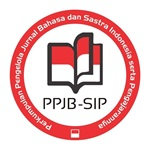POTENSI PUISI INDONESIA SEBAGAI MEDIA BIBLIOTERAPI KESEHATAN MENTAL: KAJIAN PSIKOLOGI SASTRA
DOI:
https://doi.org/10.22460/semantik.v13i2.p256-276Keywords:
Bibliotherapy, Mental Health, Poetry, Literature PsychologyAbstract
This study analyzes three Indonesian poems—Dengan Puisi, Aku by Taufiq Ismail, Episode by W.S. Rendra, and Cipasung by Acep Zamzam Noor—within the framework of literary psychology to explore their potential as therapeutic tools for mental health. The analysis employs nine criteria derived from the theories of Leedy (1969) and Mazza (2022), focusing on aspects such as theme, language, emotional depth, structure, cultural relevance, interpretive flexibility, complexity balance, and positive and transformative themes. The results demonstrate that these poems consistently support positive emotional reflection and responsibility, aligning with the study's objective to explore the therapeutic potential of Indonesian poetry. These poems avoid themes that could exacerbate mental health issues, such as despair, guilt, and suicidal tendencies, making them relevant and effective for use in mental health therapy in Indonesia. This research contributes significantly to the literature on poetry therapy by introducing a literary psychology approach to analyzing Indonesian poetry. The findings not only enhance the understanding of how poetry can aid emotional healing but also provide a foundation for developing culturally relevant and effective therapeutic methods in Indonesia.
References
Agustiningsih, D.D., (2021). Puisi Mbeling dan Persona Perempuan. Yogyakarta: Deepublish
Alschuler, M. A. R. I. (2009). The darkest abyss: Poetry therapy in the treatment of addictions. The use of creative therapies with chemical dependency issues, 256-267.
Chavis, G. G. (2011). Poetry and story therapy: The healing power of creative expression. Jessica Kingsley Publishers.
Furman, R. (2003). Poetry therapy and existential practice. The Arts in Psychotherapy, 30(4), 195-200.
Hedges, D. (2017). Poetry, therapy and emotional life. CRC Press.
Hynes, A. M., & Hynes-Berry, M. (1994). Biblio/Poetry Therapy: The Interactive Process. St. Cloud, MN: North Star Press.
Ismail, T. (2002). Horison Sastra Indonesia Kitab 1 Puisi. Jakarta: Ford Fondation.
Kähmi, K. (2022). Advances in poetry therapy. Scriptum: Creative Writing Research Journal, 2(4).
Karyanta, N. A. (2012). Terapi puisi: Dasar-dasar penggunaan puisi sebagai modalitas dalam psikoterapi. Wacana, 4(1).
Kemala, I. N., Dimyati, M., & Hidayat, D. R. (2015). Pengaruh terapi menulis puisi terhadap harga diri siswa. INSIGHT: Jurnal Bimbingan Konseling, 4(2), 51-56.
Leedy, J. (1969). Principles of poetry therapy. In J.J. Leedy (Ed.), Poetry therapy (pp. 67-74). Philadelphia: Lippincott.
Lerner, A. (1997). A look at poetry therapy, The Arts in Psychotherapy, Volume 24, Issue 1, 81-89. https://doi.org/10.1016/S0197-4556(96)00055-X.
Lorenz, D. (2020). Journal of Poetry Therapy My unique poem is me: our poems are universal. A creative interactive poetry Therapy inquiry. https://doi.org/10.1080/08893675.2020.1803617
Luxemburg, J. v., dkk. (1991). Tentang sastra. Jakarta: Intermasa.
Malchiodi, C. A. (2005). Expressive Therapies. New York: The Guilford Press.
Mazza, N. (2017). Poetry Therapy: Theory and Practice. New York: Routledge.
Mazza, N. (2022). Poetry Therapy: Theory and Practice Third Edition. New York: Routledge.
Mcardle, S., & Byrt, R. (2001). Fiction, poetry and mental health: expressive and therapeutic uses of literature. Journal of Psychiatric and Mental Health Nursing, 8(6), 517-524.
Peterkin, A., & Grewal, S. (2018). Bibliotherapy: The therapeutic use of fiction and poetry in mental health. International Journal of Person Centered Medicine, 7(3), 175.
Philipp, R. (2012). Fostering the art of well-being: An alternative medicine. A compendium of essays on alternative therapy, 3-34.
Raile, P. (2024). Poetry therapy and Eco-Anxiety–a case study. Journal of Poetry Therapy, 37(1), 35-48.
Riordan, R. J., & Wilson, L. S. (1989). Bibliotherapy: Does it work? Journal of Counseling & Development, 67(9), 506–508. https://doi.org/10.1002/j.1556-6676.1989.tb02131.x
Rokom. (2021, October 7). Kemenkes beberkan masalah permasalahan kesehatan jiwa di Indonesia. Sehat Negeriku. https://sehatnegeriku.kemkes.go.id/baca/rilis-media/20211007/1338675/kemenkes-beberkan-masalah-permasalahan-kesehatan-jiwa-di-indonesia/
Sawyer, J. (2004). Toward a pastoral psychotherapeutic context for poetry therapy: A poetry therapy process adaptation of the Hynes and Hynes-Berry biblio/poetry therapy model. Journal of Poetry Therapy, 17(3), 155-163.
Shapiro, J. (2020). Healing words: My journey with poetry and medicine. Families, Systems, & Health, 38(3), 334.
Sharma, D. (2021). Reading and rewriting poetry on life to survive the COVID-19 pandemic, Journal of Poetry Therapy, 34:2, 95-108, DOI: 10.1080/08893675.2021.1899631
Tim Riskesdas 2018. (2019). Laporan Nasional Riskesdas 2018. Jakarta: Lembaga Penerbit Badan Penelitian dan Pengembangan Kesehatan Kementerian Kesehatan Republik Indonesia.
Wakeman, B. E. (2015). Poetry as research and as therapy. Transformation, 32(1), 50-68
Downloads
Published
Issue
Section
License

This work is licensed under a Creative Commons Attribution-ShareAlike 4.0 International License.
The author is responsible for acquiring the permission(s) to reproduce any copyrighted figures, tables, data, or text that are being used in the submitted paper. Authors should note that text quotations of more than 250 words from a published or copyrighted work will require a grant of permission from the original publisher to reprint. The written permission letter(s) must be submitted together with the manuscript.

 Accreditation Decree
Accreditation Decree 









